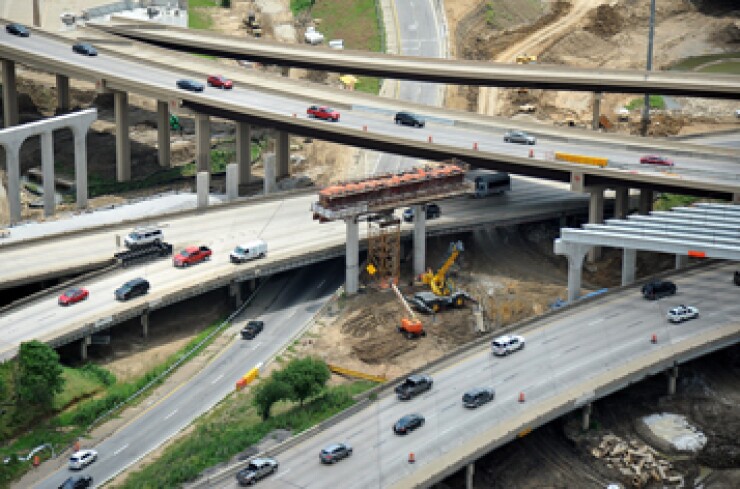
DALLAS -- Voters in 26 states on Nov. 8 will decide whether to provide a record-breaking $250 billion or more for 375 local and regional transportation projects and initiatives, according to a nationwide electoral database compiled by the Eno Center for Transportation.
The record-setting number of transportation funding measures to appear on election ballots will include requests for $54 billion in Seattle for public transit and $12 billion for highway projects in Broward County, Fla., said Eno CEO Robert Puentes.
There also are dozens of smaller proposals, such as expanding a seaport in Rhode Island, building a new airport terminal in Durango, Colo., and developing bike paths in Grand Haven, Mich., he said.
The transportation ballot measures in the Eno database are listed by state, with specifics on the locality, the official title of the proposal, the projected per-year or total revenues, and the duration of revenues.
The proposals include investments in all modes of transportation, from roads and rails, to seaports and airports, to bike lanes and sidewalks, Puentes said.
"While the nearly quarter-trillion in transportation dollars presented to voters will certainly get its share of attention, it's not just about raising money," Puentes said. "The results may mean a future of more citizen involvement in the important transportation decisions that shape their communities."
The use of voter referenda to fund transportation efforts is not a new trend but has increased over recent years as federal highway and transit funding has lagged behind local needs, Puentes said.
"Leaders in states and metropolitan areas are actually working to figure out ways to invest in their communities," he said. "While states and metropolitan areas in the West have the culture of voter referendum, mostly because the ability to do so is written in to state constitutions, the phenomenon is spreading across the country."
Voters have approved about 70% of transportation taxes on the ballot since 2000, said Jason Jordan, executive director of the nonprofit Center for Transportation Excellence.
"2016 will be a record-breaking year for transportation ballot measures," he said. "We are talking about a lot of dollars."
Nearly $200 billion of transit-oriented tax proposals will be on the ballot in at least 30 locations, the American Public Transportation Association said last month.
Nearly a third of California's 58 counties will be asking residents for new or higher transportation taxes, which must be approved by 60% of the voters. Road and transit expenditures by California counties and cities totaled $10 billion in fiscal 2016, more than twice what the counties received from state and federal sources.
The California initiatives include a sales tax referendum in Los Angeles that could generate a total of $120 billion over 30 years for road repair and other projects, and San Francisco's request for $3.5 billion of general obligation bond to fund Bay Area Rapid Transit projects.
The Ventura County Transportation Commission is asking for a 0.5% sales tax to fund road projects that would generate $70 million per year for 30 years.
"It's not a priority to invest in transportation, whether at the national level or out of Sacramento. In California, we have to do it from the local level," said Darren Kettle, executive director of the VCTC. "Our residents are angry and our businesses are angry that they can't move people, they can't move products,"
The California Transportation Commission earlier this year slashed $754 million of projects from state's long-range road plan over the next five years due to a drop in state gasoline tax collections. The commission said state road expenditures will drop to an estimated $2.9 billion in fiscal 2017 from more than $7 billion in fiscal 2011.





